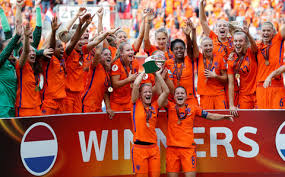October 5 – Leading bodies and figures from across the women’s game in Europe have joined forces to attack the concept of a biennial World Cup in the latest opposition to FIFA’s proposals to radically change the global status quo.
UEFA, the European Club Association and national associations from a string of countries including European champions The Netherlands, signed a strongly worded open letter denouncing FIFA for considering shortening the gap between World Cups from four years to two.
Former USA coach Jill Ellis is leading a technical advisory group working on proposals for the women’s game alongside FIFA football development chief Arsene Wenger’s assessment of the future of men’s football.
But the signatories of the open letter said staging the men’s and women’s World Cup every two years will “hamper the visibility and growth” of women’s football and could have “possible irreversible consequences such a change might entail.”
The European statement warned “only those leading nations with strong foundations have the capacity and resource levels to make it viable to compete so regularly.”
That last claim runs counter to FIFA’s argument that doubling the number of World Cups will increase opportunity for smaller nations which rarely qualify.
Just as the men’s game has called on FIFA for greater consultation, so the women’s voices urged world football’s governing body to engage in a “genuine, joint and open forum” with stakeholders.
The UEFA-coordinated statement added: “The fast-paced nature of the [so far] very selective consultation process and all-but agreed proposals have not allowed a careful reflection on what is in the best interests of the future development of women’s football or adequately assessed the possible irreversible consequences such a change might entail.”
“The proposed plans by FIFA to stage both the men’s and women’s World Cup tournaments every two years will have profoundly detrimental sporting, economic, societal and many other impacts that will fundamentally alter the course and development of the women’s game.”
FIFA president Gianni Infantino argues the international calendar needs overhauling, not least because there are too many meaningless matches.
But the women’s football statement, while acknowledging tweaks need to be made, countered: “Further development of the game we all love can only truly come about when we discuss together, at the same table, and with all those impacted by such a major decision.”
“It is a delicate equilibrium which must show respect and responsibility across a spectrum of competitions, players, coaches, fans, nations and culture.”
Contact the writer of this story at moc.l1713950626labto1713950626ofdlr1713950626owedi1713950626sni@w1713950626ahsra1713950626w.wer1713950626dna1713950626

